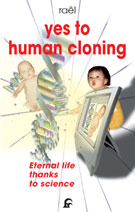
Brian Jones, Jimi Hendrix, Janis Joplin, Jim Morrison, Kurt Cobain, and this week tragically Amy Winehouse, all died at the age of 27. This coincidence has spawned the notion of the 27 Club - a club whose members are influential musicians who died at the age of 27. But is there anything statistically significant about this club? Should musicians fear turning 27?
There are a few things that we should note before starting this investigation:
- It's quite clear that it is not true to say that more influential musicians die at the age of 27 than at any other age. If this were true, musicians would be dying all the time, and the facts that our radios are filled with golden oldies and John Farnham keeps touring are testament to this.
- We will never find enough data to fully test out any theory we come up with. For example, what defines an "influential" musician? One approach might be to scour wikipedia and find the death dates of every artist who had a top ten hit in the last 50 years. I leave this as an exercise for the reader.

This distribution has an average of 36, a median of 34 and a mode of 28. All pretty close to 27. Maybe there's more to this than we thought. This can be compared to Australian Bureau of Statistics data for Australian males between 2007 and 2009. It's clear that musicians who have drug-related deaths are dying at a much younger age than Australian males. Note the caveat here, the musicians aren't dying of old age - these are only musicians who have drug-related deaths.

It's easy enough to come up with a theory for this. Musicians - indeed society at large - are most likely to start being exposed to drugs at the age of 20. In any case, before this time there aren't many musicians popular enough to have a wikipedia page or a public influence strong enough to be accepted into the 27-Club. The number of deaths seems to drop off after about the age of 40, but this is not because they are all becoming family oriented and leading a clean life. The number drops because there are less musicians alive at 40 to die. This is the same explanation for why less people in the general population die at the age of 95 than do at 80 - not that many people live long enough to die at 95.
The following chart displays the probability of dying within the next five years given that you have survived to now. For example, if you are currently in the 60-64 year age range, this chart shows the probability of dying in the 65-69 year age range. For musicians who have drug-related deaths, between the ages of 20 and 65, the chance of dying in the next 5 years is between 25-50%. Within the noise of the small sample set, its about the same for each 5 year category between 20 and 65, perhaps increasing slightly with age. This suggests that for influential musicians, if they are going to die through drug use, they have roughly the same chance of dying within the next 5 years no matter how old they currently are, perhaps a little higher if they're older. The probability of death doesn't peak at 27, and conversely, just because you have survived till now doesn't mean you have a greater chance of surviving the next five years. This is similar to the distribution of cricket batting scores, for those interested.
The peak at 25-29 in the previous chart occurs only because the musicians have not died before that age and suggests there is nothing supernatural about the number 27 (despite the curse of 27). Note that for Australian males, the data stops at 100 so the 100+ bar represents dying above this age. For the musicians, the data stops at 70-74, hence its peak at 100%.

Note again that this analysis is for musicians who die drug related deaths. It doesn't suggest that musicians have shorter lifespans than the average Australian male - it does however suggest that musicians who die via drugs have shorter lifespans. This could be because if you are going to die a drug-related death you are likely to die young because taking drugs is a risky endeavour, or it could be because by the age of 75 you have probably stopped doing drugs and so your death doesn't appear in the chart.
So is there anything to the 27 club? Not really. We've shown (albeit with just one rather incomplete article on wikipedia) there is nothing magical about the age of 27 - indeed 28 seems more interesting - and the peak in drug-related deaths around this age is quite predictable. Far more musicians die at an older age of other causes just like the rest of us, and somehow Keith Richards is still alive. The club exists because humans like to associate meaning to patterns. We're very good at pattern recognition. Our ability to associate the seasons with animal migrations, and the stars in the sky with when to plant vegetables, gave us an advantage throughout evolution. However, false pattern recognition doesn't get us killed and so we often spot patterns where they don't exist - for example, we see faces in the World Trade Center disaster, or the Virgin Mary at the beach. Some even believe that because of this, we have created religion to explain patterns we can't explain.
A nod here to the like-minded Bespoke Blog and its article Morbid Statistics & The 27 Club which I found quite coincidentally as I was finishing up this article.

























